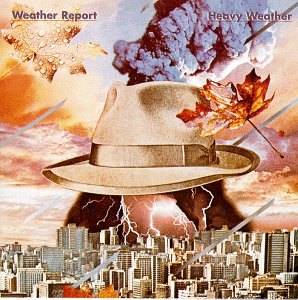
Heavy Weather is the seventh album by Weather Report, released in 1977 through Columbia Records. The release originally sold about 500,000 copies; it would prove to be the band's most commercially successful album. Heavy Weather received a 5-star review from DownBeat magazine and went on to be voted jazz album of the year by the readers of that publication. On this album the lineup consisted of Weather Report founders Joe Zawinul and Wayne Shorter (saxophone), alongside Jaco Pastorius (bass), Alex Acuña (drums), and Manolo Badrena (percussion). It was produced and orchestrated by Zawinul, with additional production by Shorter and Pastorius, and engineered by Ron Malo.
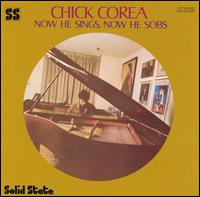
Now He Sings, Now He Sobs is the second album by Chick Corea, released in December 1968 on Solid State Records. It features Corea in a trio with acoustic bassist Miroslav Vitouš and drummer Roy Haynes. It was later reissued on CD by Blue Note in 2002 with eight bonus tracks recorded at the same sessions.
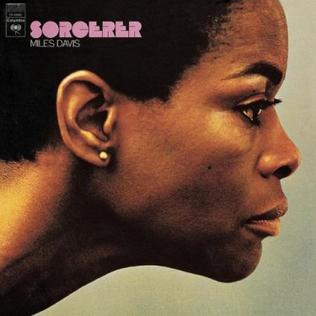
Sorcerer is an album recorded in May 1967 by the Miles Davis quintet. It is the third of six albums that this quintet recorded. It also includes one track from a 1962 session with vocalist Bob Dorough, which was the first time Wayne Shorter recorded with Davis. Davis does not play on the second track, "Pee Wee". The album's cover is a profile photo of actress Cicely Tyson, who at the time was Davis's girlfriend.
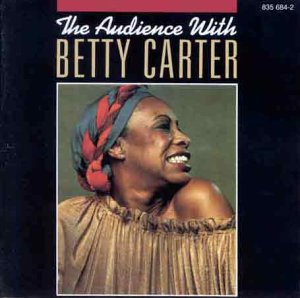
The Audience with Betty Carter is a 1980 live double album by the American jazz singer Betty Carter.

Whatever Happened to Love? is a 1982 live album by the American jazz singer Betty Carter. It is her only live album to include a string section on some tracks.

The Carmen McRae-Betty Carter Duets is a 1987 live album of duets by the American jazz singers Betty Carter and Carmen McRae. Originally released on American Music Hall Records, it was reissued in 1996 by Verve under the title Duets: Live at the Great American Music Hall with three previously unreleased tracks by McRae alone.
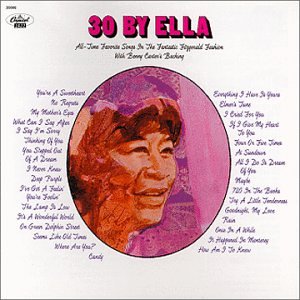
30 by Ella is a 1968 studio album by the American jazz singer Ella Fitzgerald.

My Spanish Heart is the tenth solo album by Chick Corea, recorded and released in 1976. Prominent guest musicians include Corea’s Return to Forever bandmate Stanley Clarke on basses, violinist Jean-Luc Ponty, drummers Steve Gadd and Narada Michael Walden, and Corea’s wife Gayle Moran on vocals.

Feed the Fire is a 1994 live album by the American jazz singer Betty Carter. The album was recorded at London's Royal Festival Hall during Carter's European tour. It was Carter's first live album since 1990's Droppin' Things, and her only album recorded outside of the United States.

Social Call is an album by Betty Carter featuring Ray Bryant and a big band arranged by Gigi Gryce. Of its eleven tracks, the first six were recorded in 1955 and originally released as part of the album Meet Betty Carter and Ray Bryant. The other five tracks were recorded in 1956 but remained unissued until this compilation, which Columbia Records released in 1980.
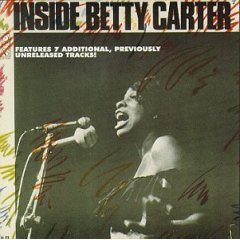
Inside Betty Carter is a 1964 Betty Carter album. It contains the first recording of Carter's signature song, "Open the Door". Originally released on the United Artists label with eight tracks, it was reissued by Capitol Records in 1993 with seven previously unreleased tracks from a 1965 recording session that included Kenny Burrell on guitar.

Finally, Betty Carter is a live album by Betty Carter. Though it was recorded in 1969, its release was delayed until 1975 because the master recording was stolen. A second album of material recorded from the same concert, Round Midnight, was released the same year.

Betty Carter at the Village Vanguard is a 1970 live album by Betty Carter featuring her performing with her trio at the Village Vanguard. It was Carter's first live album to be released, and the first album issued on her own label, Bet-Car Records. Originally eponymously titled, it was given its present title for its 1993 release on CD by Verve Records.
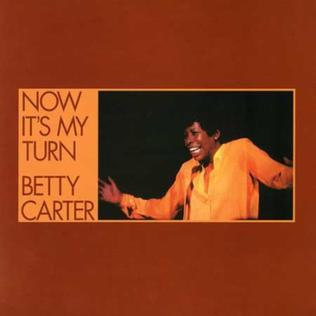
Now It's My Turn is a 1976 album by American jazz singer Betty Carter.
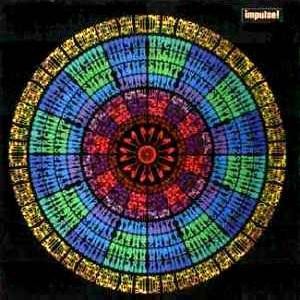
The Way Ahead is an album by Archie Shepp, released on Impulse! Records in 1968. The album contains tracks recorded by Shepp, trumpeter Jimmy Owens, trombonist Grachan Moncur III, pianist Walter Davis Jr., bassist Ron Carter and drummers Roy Haynes and Beaver Harris in January 1968 with two additional tracks featuring baritone saxophonist Charles Davis, pianist Dave Burrell and bassist Walter Booker recorded in February 1969, and first released on Kwanza (1974), added to the CD release.

Pre-Bird is an album by jazz bassist and composer Charles Mingus consisting of music that was composed before Mingus first heard Charlie Parker, hence the title Pre-Bird. It was released on Mercury Records in September 1961.

Directions is a compilation album by American jazz musician Miles Davis, released in 1981 by Columbia Records. It collects previously unreleased outtakes that Davis recorded between 1960 and 1970. Directions was the last of a series of compilation albums - mostly consisting of, at that time, previously unreleased music - that Columbia released to bridge Davis' recording hiatus that ended with The Man with the Horn in July 1981.

Inner Space is a compilation album of Chick Corea music released by Atlantic Records in 1973. The album contains all four tracks from Corea's 1968 debut album, Tones for Joan's Bones as well as two previously unreleased tracks from the same recording sessions and two tracks originally released on Hubert Laws' 1969 LP Laws' Cause.

Buhaina is an album by drummer Art Blakey and The Jazz Messengers recorded in 1973 and released on the Prestige label. The name comes from the name Blakey took for himself after conversion to Islam.
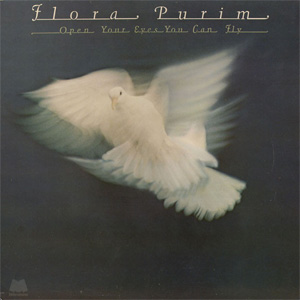
Open Your Eyes You Can Fly is the fifth solo studio album by Brazilian jazz singer Flora Purim. It was released in 1976 via Milestone Records. Recording sessions for the album took place at Paramount Recording Studios in Los Angeles, California. The album features contributions from Airto Moreira on percussion and vocals, David Amaro and Egberto Gismonti on guitars, George Duke on keyboards, Hermeto Pascoal on electric piano and flute, Alphonso Johnson and Ron Carter on bass, Robertinho Silva and Leon "Ndugu" Chancler on drums, and Laudir de Oliveira on congas. One of the songs featured here, Sometime Ago, was composed by Chick Corea with lyrics by Neville Potter and was featured on the eponymous album by Return to Forever produced in 1972, Flora Purim and her husband Airto Guimorvan Moreira also played on that album.




















